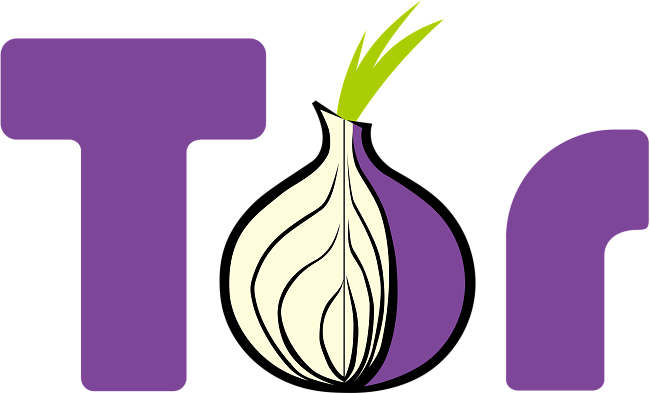Tor vs. VPN – Which is the Most Secure
When you want to protect your data and privacy while browsing the internet there are a few different programs and apps that you can use. Both Tor and VPNs are popular options, but which one is best for you? This article will guide you on how each one works and which of the two are better for you.
What is Tor?

Tor is an acronym of The Onion Router, a data encryption method that was created by the US Navy. It is a layered encryption, meaning that the data has been re-encrypted multiple times for each instance the data passes through randomly chosen nodes.
This network provides software that allows you to anonymously access the internet. Unlike a VPN, Tor routes your signal through various nodes which can only see the IP addresses in front of and behind the node, so no one can see the entire path from the website you are connecting to your device, protecting your privacy.
Tor is regarded as a very safe and secure means of access the internet while remaining anonymous. It has been endorsed by various civil liberty groups, as many journalists and human rights workers can do their work online without being blocked, especially as much of their work requires access to banned sites. Unfortunately this does also allow criminals to act with anonymity. But for the most part, Tor allows access to those looking to simply sidestep bans in their region.
How Tor works
As mentioned above, when using Tor, data is passed between various randomly chosen nodes that encrypt the data with each pass. The nodes know where the signal has come from and where it is going, but it can’t see the entire route the data is taking.
The relay circuits are reset every 10 minutes in a random manner so your actions can’t be linked together. Every node has a volunteer that runs it, so the more volunteers a network has, the more secure and efficient the system is.
Installing Tor
It is very simple to install Tor to your device and can be used on OSX, Windows, Android, and Linux/Unix. You simply need to download the Tor package and run it. It will automatically extract itself, requiring no additional installation files. Once the extraction is complete, click the ‘Connect’ button to initiate the connection dialogue.
Once you are connected, you can use the customized Firefox Portable browser, which is lightweight enough that you can keep it with you on a USB for use on other computers. You can turn Tor off and on using the Tor icon.
What is a VPN?

A Virtual Private Network, or VPN, is a private, simulated local area network (LAN) that extends across the internet so you can anonymously visit any site, regardless of your geolocation or blocks. The information that leaves your computer gets encrypted so your browsing data is kept anonymous and secure.
VPNs offer huge advantages as it limits the chance that your online activity will be traced, your sensitive information is protected from hackers, and other threats to your security. There are corporate and consumer VPNs available, but we are dealing with readily available consumer VPNs.
How a VPN works
A VPN connects you to a remote server that encrypts the connection to your computer. Basically, it acts in lieu of your device when you are online. It is more secure than Tor as the encryption is very secure, often AES 256-bit, and your browsing history is not logged or stored when using good VPNs. As you can use IP addresses from anywhere in the world through the VPN server, you can access content that has been geo-blocked, and it can also mask your location.
Tor vs. VPN
It is plain to see that Tor and VPNs have the same primary purpose to protect your anonymity when you are on the internet and to sidestep firewalls. Tor can also be used to evade geolocation restrictions by reconnecting until the exit node is located in an unblocked country.
For the ultimate in privacy you can use them together with a VPN that allows for a Tor over VPN connection. This way you’ll enjoy the benefits of each program.
But, what you will also notice is that the technology is quite different and the way you use them is also dissimilar. Each has advantages and disadvantages to be considered.
Advantages of Tor
- You can access region restricted content and websites
- Your external IPs can’t be traced
- As the network is distributed, it is near impossible to shut it down
- It is free to use the network and software
- Your IP address is kept anonymous
Disadvantages of Tor
- As your data is bouncing between nodes, using Tor can be very slow
- Tor is an inefficient method for location spoofing
- Anyone can become a volunteer and can spy on your activity
- The Tor network can only be accessed from browsers or apps that have Tor access installed
- As Tor nodes are free and privately run by volunteers, there is no maintenance or accountability
- Frequently using Tor can identify you as someone to be watched
Advantages of a VPN
- Very fast, with very little lag on your bandwidth
- Spoofing your location is very simple
- Great for P2P file sharing
- Free, safe VPNs can be found (although are not recommended)
- Paid VPNs ensure that the network is maintained, providing you with great security, functionality, and availability
- VPNs protect every internet connection you have on your device
- The kill switch on a VPN protects you from data leaks
Disadvantages of a VPN
- VPN providers can see your online activity
- Not free (at least not the good ones)
- Some VPN providers store your logs
Final Thoughts
A significant benefit of using Tor is that you no longer have to depend on external sources. Installing Tor alone allows you to attain online anonymity without requiring trust in others. Unfortunately, Tor is quite slow and is therefore not ideal for most of the activities you would typically use a Tor or VPN for, such as accessing geo-restricted content and P2P file sharing.
By selecting a trustworthy VPN provider that does not store your logs, you have a secure, safe, and private browsing solution that allows for greater flexibility and performance than what Tor can give. Of course, there is not service that can truly promise 100% anonymity, no matter which of these two you choose. There will always be loopholes, hacks, or simple mistakes that could compromise your privacy, but when comparing Tor and a VPN, the safest option is a VPN, which is our recommended option.




Leave a Comment
Cancel